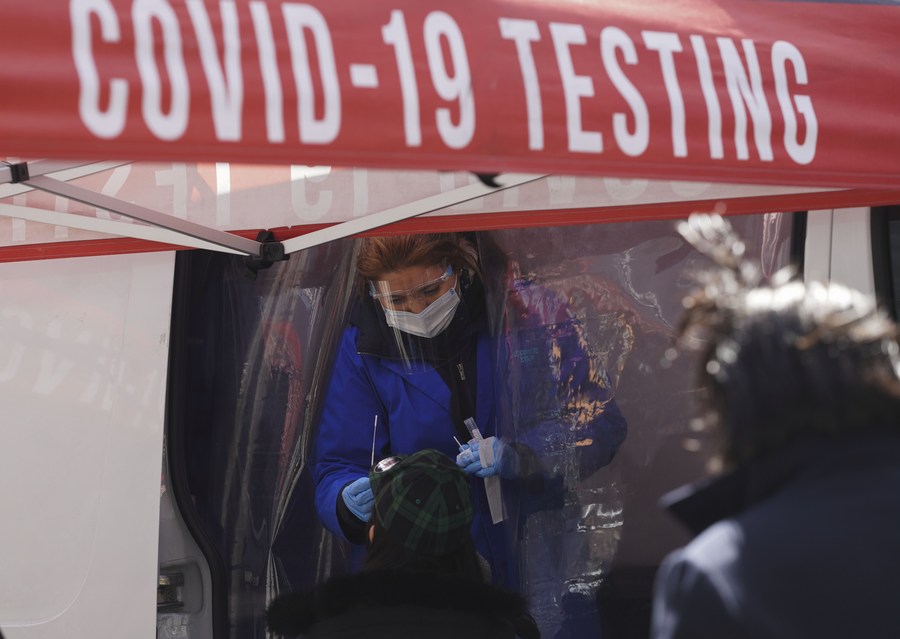Half of US states see rise in COVID-19 cases due to BA.2 Omicron subvariant


LOS ANGELES - COVID-19 cases are rising in more than half of all US states due to the BA.2 Omicron subvariant, according to data of the US Centers for Disease Control and Prevention (CDC).
The United States is now averaging about 35,000 new infections daily, up 19 percent from the previous week and 42 percent from two weeks prior, CDC data show.
Meanwhile, about 370 new deaths and 1,400 new hospitalizations were reported across the country every day, according to the latest CDC data.
Experts said official case counts may go "underreported" because many at-home test results have not been reported to state or federal health agencies.
Nearly 1 million people in the United States have died from COVID-19 so far.
People who have heart conditions are more likely to get very sick from COVID-19, and cardiovascular disease is still the leading cause of death in the country, according to the CDC.
White House COVID-19 advisor Ashish Jha said on Sunday that COVID-19 vaccines are still "holding up" against the virus, adding it remained to be seen if BA.2 would cause more severe disease than earlier variants and subvariants of the virus.
Early study suggested the BA.2 subvariant is thought to be about 30 percent more transmissible than the original BA.1 Omicron strain.
Jha said Americans over 60 should get a second booster shot of a coronavirus vaccine, citing "pretty compelling" new data from Israel indicating that a fourth shot significantly reduced infections and deaths among older people there.
The US Food and Drug Administration on March 29 authorized second booster shots of the Pfizer-BioNTech and Moderna coronavirus vaccines for everyone 50 and older.
As of Monday, about 218 million people, or 65.9 percent of the total US population, have been fully vaccinated, CDC data show.
COVID-19 boosters have been authorized in the United States for adults since November, but CDC data show fewer than 50 percent of eligible Americans have received their first booster.
Experts said the coronavirus has changed over time. The vaccines may not prevent all infection, but they still protect against the worst consequences of the disease.
Rolling back COVID-19 mitigation measures such as mask mandates and vaccine requirements too soon may lead to continued rise in COVID-19 cases and higher risk to the public, experts warned.
































